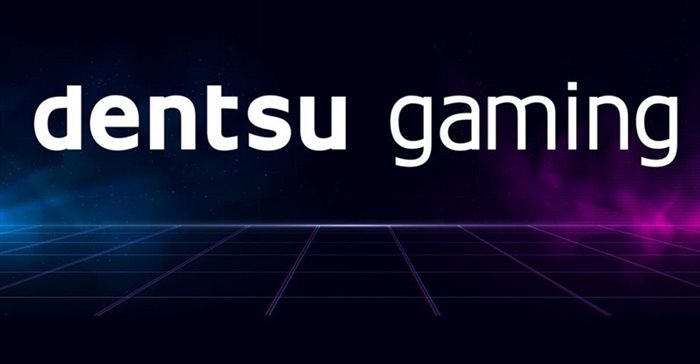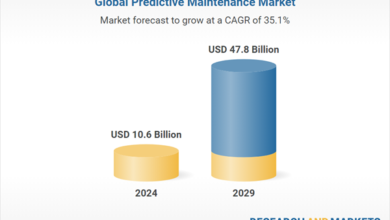Game changer: How data science is reshaping esports

Gaming has transformed into a $168bn industry, establishing itself as the leading sector in entertainment. Its pervasive culture is evident in various forms of media, including film, TV, books, and fashion, influenced by iconic games like Super Mario Brothers and Street Fighter.
In South Africa, the video games market is projected to reach approximately $72.35m in 2024, with an annual growth rate of about 5.93% projected through 2027. This steady increase in the market size reflects a growing interest and investment in gaming within the region. As of 2021, about 40% of South Africa’s population, or approximately 24 million people, play video games, demonstrating a high level of market penetration and engagement with video games among the population.
Similarly, sub-Saharan Africa, including Nigeria, has seen a surge in gamers, now totalling approximately 186 million. This growth has been fuelled by increased internet access and the affordability of smartphones, which are the primary gaming devices in the region. The sector’s evolution from the 90s arcade boom to today’s diverse gaming platforms exemplifies its expansive reach.
Dentsu Gaming
Dentsu’s initiatives highlight the potential of in-game advertising (IGA) and esports sponsorships (influencer marketing) to reach global audiences. A good example is the case study of StreamO powered by Uplify, which partnered with Intel to promote 12th Gen Intel Core TM-powered laptops to PC gamers and Gen Z audiences.
This proved to be a very scalable and innovative way by making use of gaming content creators and their communities who were most active on various platforms including YouTube, Twitch, Discord, and Instagram. India has seen a 56% rise in live-streaming videos consumption, with gaming accounting the largest share showcasing the impact that gaming has on advertising.
Another good example is Dentsu’s partnership with KFC to create a full-service virtual dining experience for Gen Z (KFC Re: Store). This is an idea which uses the metaverse to create a new permanent retail platform for KFC in China by taking advantage of the changing behaviours of the newer generations which have shifted the retail landscape to mostly online.
A virtual store experience was created, which was hosted on one of the most popular platforms for young people in China, QQ that wasn’t just another brand turning up in the metaverse. It however captured the cultural, sensory, and playful elements of the Gen Z audience, and they can also order food in the online world, and have it delivered in the real-world.
By fusing these elements together, and bringing KFC to the metaverse, it not only boosted the brand’s income, but gave the audience a unique shopping experience while doing things they love too. This strategic use of gaming ads not only enhances the customer experience but also provides brands with measurable impact insights, proving the effectiveness of their advertising investments in gaming.
Esports and advertising
The global ascent of esports mirrors traditional sports in rigor and organisation, supported by modern technology that broadcasts competitions worldwide. Platforms like Twitch enhance viewer engagement by streaming major tournaments and facilitating real-time interactions between fans and esports professionals. The integral role of data science in this domain is unmistakable, as it drives innovation in game development and competitive strategies.
In-game advertising, exemplified by Barack Obama’s 2008 campaign ads within popular games like Madden NFL 09 and Need for Speed, showcases how effectively games can be used as innovative marketing platforms.
Esports sponsorships also provide unique opportunities for brands to engage with audiences, where data extracted from campaigns offers invaluable insights targeted at a unique audience. A study highlighted the efficacy of in-game advertising, showing that interactive ads within games can significantly enhance consumer purchase intentions, especially when ads are seamlessly integrated into the gaming environment, fostering a sense of presence and relevance (Hussain, Islam, & Rehman).
Further research into influencer marketing has revealed that personal connections and the social attractiveness of influencers can heavily influence consumer perceptions and behaviours towards brands advertised in gaming content, underscoring the potential of targeted advertising in esports environments. Additionally, content analysis of food and beverage marketing in esports broadcasts has demonstrated how brands can leverage popular gaming figures to influence viewer preferences and behaviours, often promoting less healthy food options among young audiences (Evans et al.).
Advertising has worked for energy drinks and the actual number and time of exposure on Twitch. This underscores the need for strategic content management in gaming to enhance brand image and consumer health awareness.
Data science as support of esports performance and strategies (opportunities for brands and marketing)
Data science applications in gaming are multifaceted, focusing on enhancing performance and strategizing through advanced statistical analysis and machine learning techniques. Data science also opens significant opportunities for brands and marketers within the esports arena, particularly through innovative ad formats and targeted advertising strategies.
By analysing viewer and player data, brands can create highly personalised ad experiences that are seamlessly integrated into esports platforms, enhancing engagement without disrupting the viewer experience. Here are some of the ways data science can be applied in esports.
Player performance analysis: Data science allows teams and coaches in esports to analyse player performance in unprecedented detail. By collecting and analysing data from gameplay, teams can identify strengths, weaknesses, and patterns. Metrics such as reaction times, accuracy, decision-making speed, and strategic tendencies can be quantified and used to enhance player performance.
For example, in games like ‘League of Legends’ or ‘Dota 2′, data analytics can track players’ positioning, skill usage, and item timings to provide insights that help in refining tactics.
Match outcome prediction: Machine learning models can predict match outcomes by analysing historical performance data of teams and players. This not only enhances fan engagement through betting platforms but also aids teams and coaches in strategy formulation by predicting opponent moves and strategies.
For instance, prediction models can be trained using a dataset of match records, player performances, and team compositions to forecast the winners of upcoming matches with a significant degree of accuracy.
Enhancing viewer engagement: Data science is used to analyse viewer preferences and behaviour, which helps in customising content delivery to enhance viewer engagement. Streaming platforms like Twitch use data analytics to optimise streaming quality, advertisement placements, and even recommend content to users.
In esports, data-driven insights can help tournament organisers schedule matches, tailor content for different segments of viewers, and develop interactive and personalized viewing experiences.
The synergy between gaming and data science is reshaping the landscape of entertainment and competitive sports. Through innovative applications of data analytics, the gaming industry continues to evolve, offering increasingly engaging and personalised experiences for players and fans alike.
This revolution not only enhances the gaming experience but also sets new standards in entertainment technology and fan interaction, marking a significant pivot in how digital entertainment is perceived and consumed globally.



